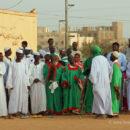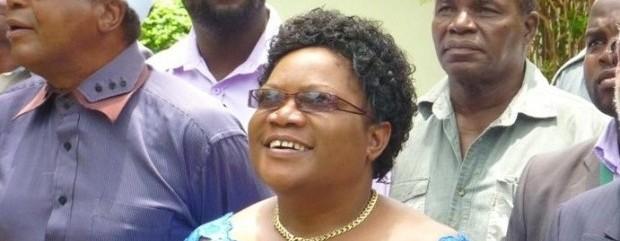In Memoriam: Majzoub al Khalifa Ahmed
Last week, Dr Majzoub al Khalifa Ahmed, advisor to the President of Sudan, was killed in a car accident on the road to his hometown, Shendi, on the Nile north of Khartoum. His brother also died. I express my condolences to his family, who are mourning the death of the two men.
Majzoub was in charge of implementing the Darfur Peace Agreement on behalf of the ruling National Congress Party, and was earlier the government’s chief negotiator at the Abuja peace talks that led to the DPA. In both capacities I knew him.
In its condolence message, the African Union described Majzoub as a "formidable" negotiator. That is a tactful way of describing his immense capacity for frustrating any forward movement on the talks and then implementing the deal on his own terms. Majzoub was relentless. His command of detail was extraordinary. He kept a file on every individual in the Chida Hotel, where the talks were held, and no piece of gossip escaped his ears. He knew every dot and comma in the text and exploited every tiny loophole.
I coined the term "retail politics" to describe how Majzoub operated. He tried to calculate the price of every individual and offer him precisely that amount—not a cent more. The antechamber of his office in Khartoum was a picture of how this operated. Supplicants were kept waiting all day for a few minutes of his attention, then sent on their way with just sufficient resources for the task in hand and an obligation to report back very soon. Majzoub micro-managed the administration of Darfur as he had micro-managed the peace negotiations, winning every skirmish but somehow losing sight of the bigger picture. For him, offering just $30 million as the government’s down-payment into the Darfur compensation fund was a victory—for the peace talks it was a disaster. Whenever I or any other member of the AU mediation tried to get Majzoub to focus on the big questions before us—how to save Sudan from its self-inflicted wounds—he would drag us into details and insist that whatever we were suggesting was "impossible, impossible."
Majzoub was exhausting even in giving compliments—I could scarcely slip a word in to the conversation when he was congratulating me on the birth of my son. In many cases he frustrated his colleagues as much as his adversaries. A veteran Islamist, he was a physician and a trade unionist. If I had been a member of the Sudanese doctors’ union I would certainly have wanted him on my side in the pay negotiations: no minister of health could have matched his mastery of the brief and tenacity in pursuing his goal.
Majzoub qualified as a dermatologist. Hassan al Turabi unkindly remarked, "even his speciality is superficial." I wondered if this expertise had allowed him to grow a specially thick skin—he was immune to insult and simply smiled impassively when SLA or JEM delegates abused him across the negotiating floor. After I published an article that described him as "reptilian," his sole comment was that the piece was "fair."
Last November, President Omar al Bashir tried to remove Majzoub from the Darfur file and give the task to the Assistant President Nafie Ali Nafie and the former foreign minister, Mustafa Ismail. But Majzoub wouldn’t budge, and he was too powerful to be so easily brushed aside. He prevailed—an indication of how Khartoum politics can work. He was harder-working, more organized and more relentless than his internal rivals and his external adversaries. With his passing there is a vacuum, and various rivals will be contending to fill the space he has left.
For me, Majzoub exemplified the capabilities that have kept Sudan’s ruling minority in power for fifty years—and also the limitations of those skills. I never liked him. I looked forward to our meetings as a boxer must anticipate his most formidable opponent. But he compelled respect. Dealing with Majzoub, I had to be at my sharpest, best-informed and most strategic. I could not show the slightest weakness in command of fact or logic. Winning a round with Majzoub was to be treasured, as was the glint of appreciation in his eye when he knew he hadn’t won. For that, I will miss him. May he rest in peace.





